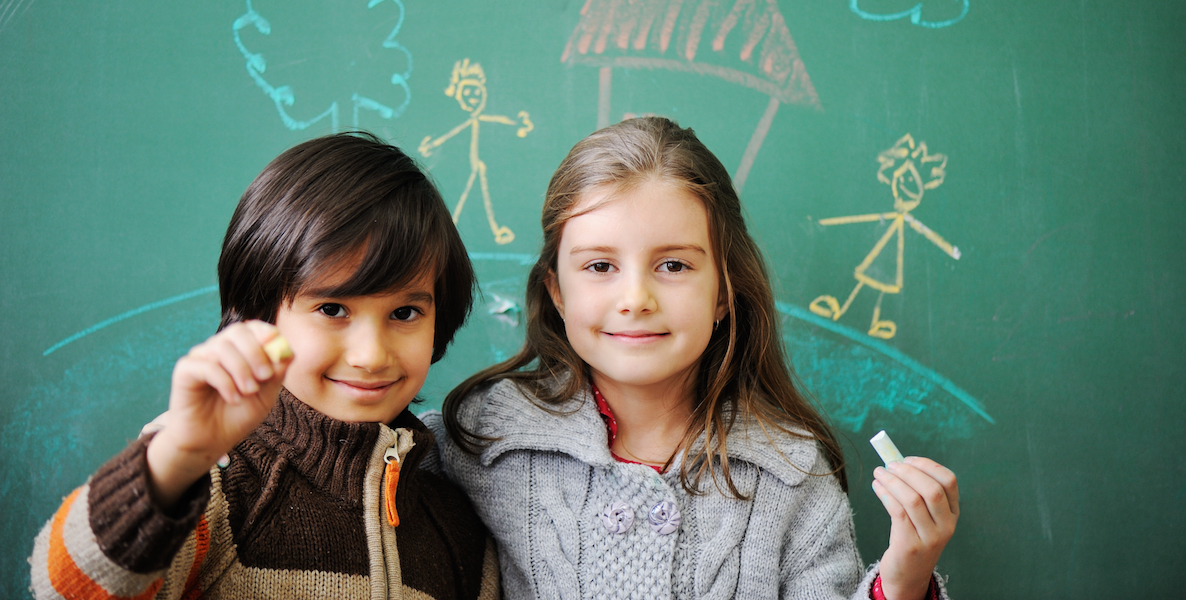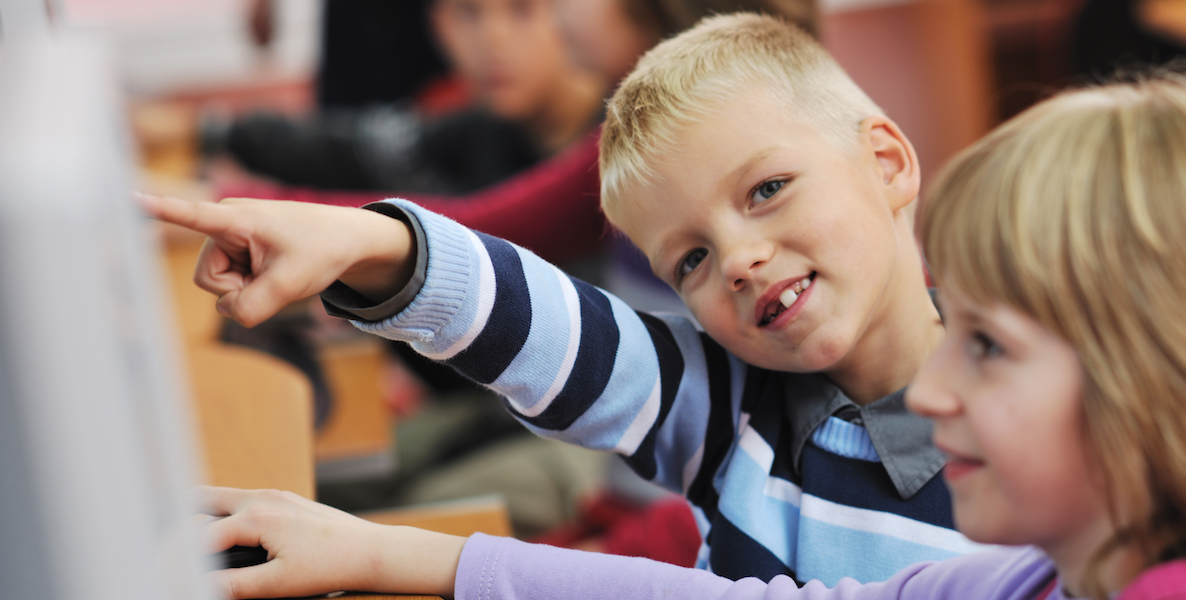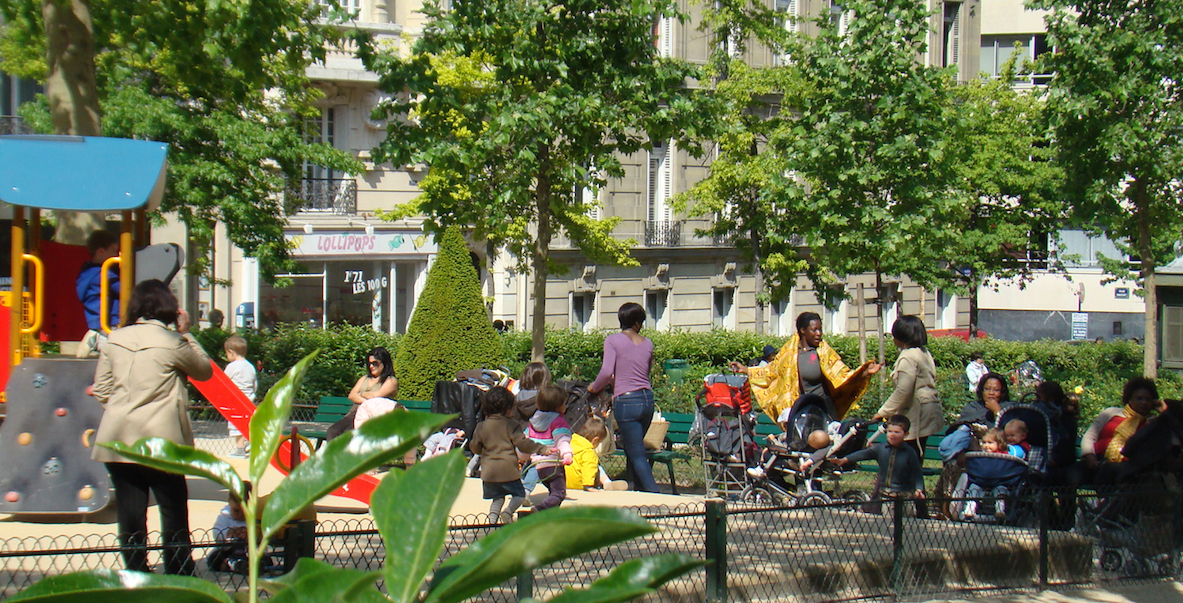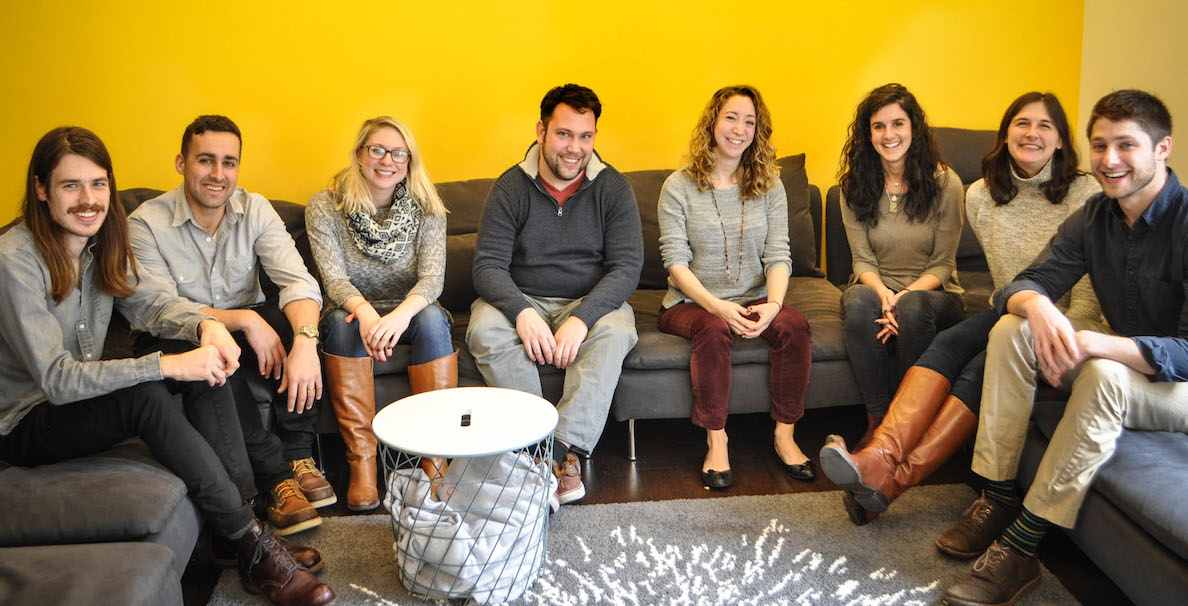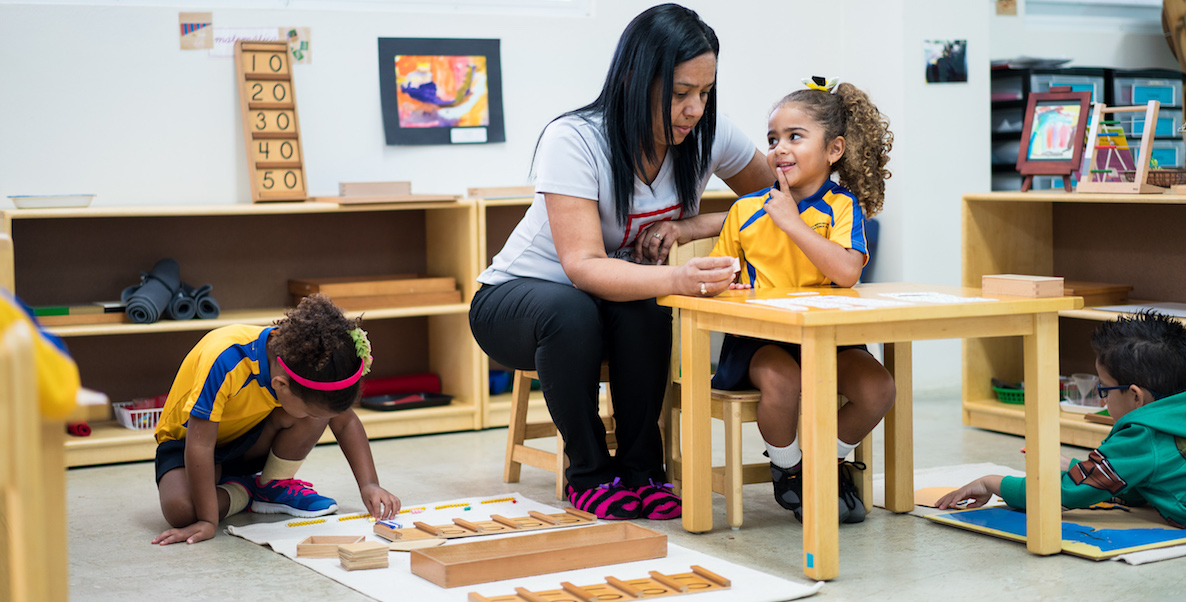In 1987, the Juan Domingo neighborhood in Puerto Rico’s northern city of Guaynabo became the center of a controversy all too familiar to Philadelphia. With too few students enrolled in its struggling school, the local government was threatening to shut it down. The community responded with loud protest, organizing rallies before the gates of La Escuela Juan Ponce de León and organizing lobbying efforts until the authorities gave in. The school was to remain open.
But the community turned that victory into something more than just another chance for a struggling public school. In 1994, La Nueva Escuela Juan Ponce de León opened its escuelita as the first public Montessori school in the history of the island. Over time, the school’s high academic standards not only became an education model for Puerto Rico, its philosophy of student and community empowerment unleashed a chain reaction that began to upend the systemic issues of violence, drugs, desertion and poverty that afflicted Barrio Juan Domingo.

It was the start of what has become a peaceful revolution quietly growing in Puerto Rico’s public education system that is transforming my homeland one school, and neighborhood, at a time.
Montessori education, first developed by Maria Montessori at the University of Rome in 1897, is a child-centered approach characterized by an emphasis on freedom with limits, independence, and a respect for individual psychological, physical, and social development. As such, it is students themselves who structure their learning days. Classrooms are mixed age spaces, and children choose learning materials from a carefully-curated selection, instead of receiving direct instruction. So-called “guides”—the equivalent of a teacher—provide individual feedback and brief lessons that encourage self-exploration. As students age, guides function like observers who interfere less and less.
“What has happened in this school is a true miracle,” one Puerto Rico elementary school principal said. “For children, in terms of their behavior, discipline, and social skills, they have learned to solve their problems themselves. It has been an incredible change since we adopted the Montessori philosophy.”
The pedagogy is popular around the globe, including in the United States, where there are about 5,000 Montessori schools, including around 500 public Montessoris. Still, it remains a luxury mostly available only to middle and upper class families in private school settings. But recent evidence shows that the Montessori method can particularly benefit underprivileged and underrepresented children, as well as minimize the consequences of low family income.
Over the course of eight years, Angeline Lillard, a University of Virginia psychology professor, compared multiple groups of Montessori preschool students to non-Montessori preschool students in Hartford, CT. By the end of the study, Lillard found that though test scores of low-income children still lagged behind their higher income peers, the achievement gap had significantly diminished. By contrast, the scores of lower-income children in non-Montessori schools were farther away from those of higher-income students each time the tests were administered.
![]()
Not only that: Montessori kids liked their schoolwork and environment more than non-Montessori students, and they also exhibited better social skills and higher levels of executive functioning. (Lillard also points out that the founders of Amazon, Google, Wikipedia and Sim City all attended Montessori schools.)
“People keep trying to fix conventional schools to make them work, but they fail to notice an alternative system that data indicate works quite well as it is,” Lillard wrote in a Dallas Morning News column recently. “If we start to think more about how children naturally learn and recognize how recently in human history our conventional school program came to be, perhaps we could loosen our grip and turn to better alternatives.”
Currently, there is one public Montessori school in Philly, where the first Montessori classroom in the nation opened in 1968, in a preschool at Benjamin Franklin Elementary. By the late 90s, the District had 21 Montessori preschool and three elementary classrooms spread among nine schools.
In Puerto Rico, Ana María García Blanco, then La Juan Ponce de León’s school’s principal, saw these results firsthand. In 2005, she created the Instituto Nueva Escuela (INE), a nonprofit dedicated to improving the academic performance and socio-emotional wellbeing of Puerto Rican students through the implementation of Montessori in the public school environment.
INE schools tend to be those that were on the brink of closing, beset by the systemic issues—such as drugs, poverty, and violence—that plague the traditional Puerto Rican public education system. The group partners with schools to certify teachers in the Montessori pedagogy, train school leaders to run a school using the philosophy and for ongoing technical assistance in rolling out the new programs.
![]()
Today, 50 schools are part of the INE network in Puerto Rico, using Montessori methods in every classroom and throughout the school. In 2015, the island’s education department launched a Montessori division, formalizing its relationship with INE. Now the organization aims to partner with an additional 100 schools by 2020.
The results have been stunning. In the 2016-2017 academic year alone, INE served more than 12,000 K-12 students with no dropouts, no incidents of serious violence, and no drug incidents. Some 85 percent of 3rd grade children mastered reading skills, and standardized scores were 5 percent above the scores of non-Montessori public school students. The schools also saw a 92 percent teacher retention rate and 90 percent of families participating in the schools.
This stands in contrast with the island’s traditional public education system, where 40 percent of students who enter the 10th grade drop out before graduation, and some 95 percent of students graduate at a sub-basic level.
Outside of the classroom, Puerto Rico’s Montessori schools are neighborhood hubs for students and families to share—similar to what the new Philly community schools aim to be.
At la Juan Ponce, faculty and staff members offer zumba classes as part of a health and fitness program for families. In a Vieques school, there is a student-run vegetable garden which the school kitchen uses. There are summer programs, after-school tutoring programs, child development workshops, and guest speaker events. Some INE schools even offer psychological services through the nascent Casa Familiar Project.
“It is important to matriculate the entire family, not only the students,” says Garcia Blanco. “This collective involvement improves quality of life, academics, and discipline—which are all connected.”
In 2016-2017, INE served more than 12,000 K-12 students with no dropouts, no incidents of serious violence, and no drug incidents. Some 85 percent of 3rd grade children mastered reading skills, and standardized scores were 5 percent above the scores of non-Montessori public school students.
Puerto Rico and Philadelphia may seem worlds apart—specifically, 1,500 miles of ocean stand between them. But their problems share at least one long-term solution: a comprehensive and successful education system for their children and youth.
The island lags behind even Philly in some of its dismaying metrics: Philly’s graduation rate is 67 percent, compared to Puerto Rico’s 60 percent. Around 38 percent of children here live in poverty; in Puerto Rico, it’s 60 percent. Both school systems manage similar challenges when it comes to drugs, crime, childhood trauma, and family dysfunction. They both educate mostly poor black and brown youth. And they both have suffered the crippling deficits that have shuttered effective school programming and cut necessary resources.
Currently, there is one public Montessori school in Philly—the Philadelphia Montessori Charter School, which opened in 2004. The school has scored high in climate and community metrics—higher attendance and retention rates, lower suspensions—but has been slipping academically in the past three years in part because it stopped accepting preschoolers into the program when the founder left, one of several areas of argument between District and school officials. (Montessori schools also operate in three-year learning cycles, which makes yearly testing a difficult measure.) Teachers at the school have also reported a primordial focus on the overall development of the child, not just academics and testing.

That wasn’t always the case. It was Philadelphia that opened the first Montessori classroom in the nation in 1968, in a preschool at Benjamin Franklin Elementary. By the late 90s, the District had 21 Montessori preschool and three elementary classrooms spread among nine Philly schools.
There was even a Montessori coordinator for Head Start—Janet Colaiani, who worked for Philly public schools for over 36 years, and helped coordinate teacher training with Chestnut Hill College’s Montessori program. Colaiani retired in 2009, and the programs slowly faded away. “Changes in school administration, funding issues, the closure of schools that housed Montessori classrooms, and a move towards all teachers following one curriculum model made it harder for the program to survive,” Colaiani says.
![]()
Colaiani says the climate is ripe for a resurgence in Philly, which has a strong Montessori community. There are two Montessori teacher certification programs here, including Montessori Teacher Training of Philadelphia and Chestnut Hill College, where Colaiani until last year directed the Montessori Teacher Education Program. Chestnut Hill is also a hub of regular gatherings for Montessori-trained leaders from around 30 schools, many of whom were involved in the move to open the city’s Montessori charter.
So far, Colaiani says, Superintendent Hite’s administration has not expressed much interest in the idea. But that could change, with more understanding of how Montessori schools work in urban districts. That’s what happened this year in San Antonio, where a new school superintendent—hoping to keep parents from fleeing the district—opened its first Montessori elementary. And it’s what happened several years ago in Milwaukee—a small city with the same socioeconomic issues as Philadelphia—which has had success with eight public Montessori programs.
Both districts worked with the National Center for Montessori in the Public Sector (NCMPS), an independent non-profit that has helped districts across the country open Montessori schools. NCMPS spokesman David Ayer says the group would bring its support to Philadelphia, if the district were open to the idea. And Colaiani has an army of Montessori advocates ready to take the reins. As in Puerto Rico, it could be just the answer many struggling schools need.
“What has happened in this school is a true miracle,” one Puerto Rico elementary school principal, José Ricardo de Jesús, said recently. “For children, in terms of their behavior, discipline, and social skills, they have learned to solve their problems themselves. It has been an incredible change since we adopted the Montessori philosophy.”
Header Photo: Instituto Nueva Escuela (INE)


